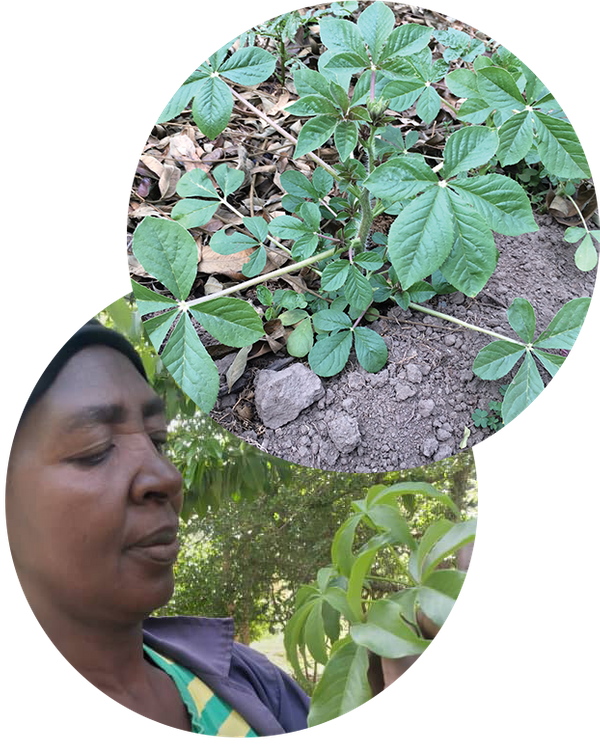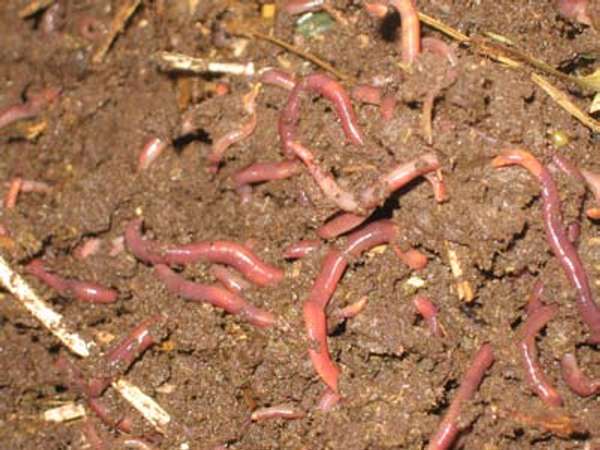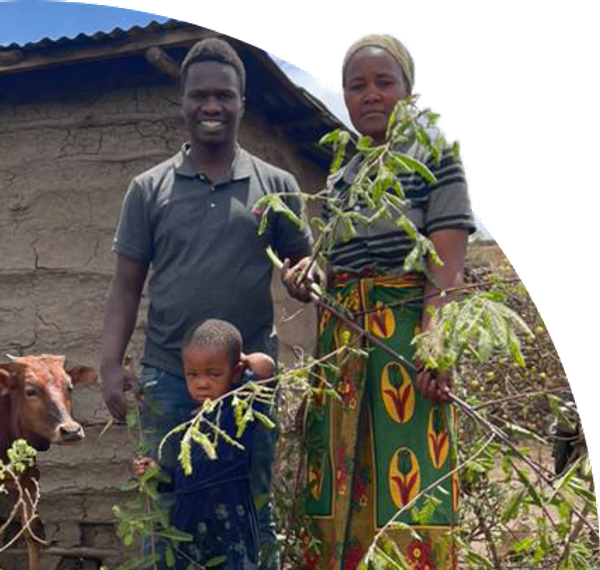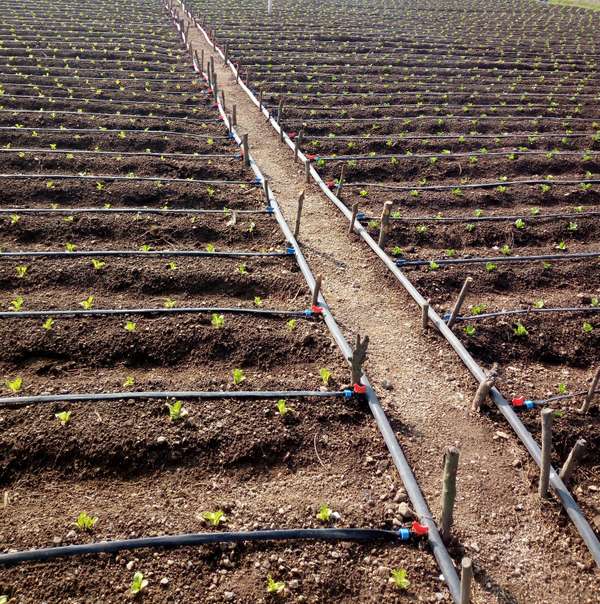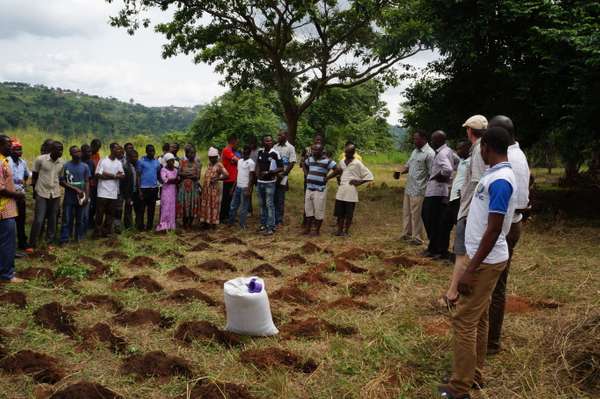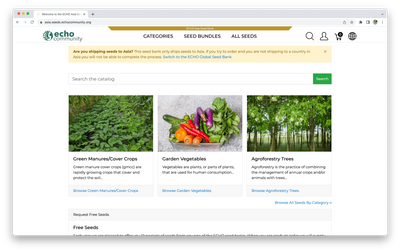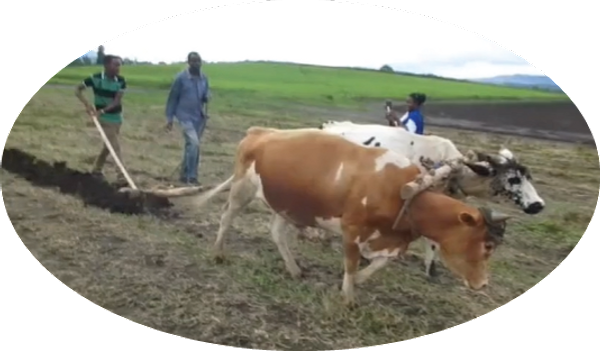Mises à jour de ECHOcommunity
East Africa Note 9 Now Available! 2023-01-31
In this issue:
Food from the Wild
Erwin Kinsey
Join the Conversation about Wild Foods
Excerpt:
Traditionally, the Hadzabe, eat these plants uncooked or with minimal processing. Occasionally, wild foods are roasted over open fires, i.e., without pans or skillets but mostly raw with minimum processing. This has changed recently to some extent, depending on preferences within family clusters and their proximity to outside influence, but overall their approach to food preparation and consumption leaves a very light footprint on the earth. They continue to kill only what game they can consume, and are accustomed to sharing all things without hoarding or sense of ownership.
Join the Conversation: Worm castings and compost teas 2023-01-17
Have you ever tried or are interested in trying worm or compost tea in your garden? Network member Mike is interested in trying worm or compost tea but has some questions for you!
For more information about how to vermicompost, visit this link: http://edn.link/tn66
For more information about how to make compost tea, visit this link: http://edn.link/jkjnh4
ECHO East Africa Symposium on Sustainable Agriculture and Appropriate Technologies 2023-01-12
This 7th Biennial ECHO East Africa Symposium will provide a network and training opportunity for those involved in alleviating hunger and poverty in East Africa. Three mornings of plenary sessions featuring knowledgeable and experienced speakers will be followed by afternoon workshops and discussion groups led by regional agricultural development workers and experts. This event will enable three days of sharing by presentations, some practical sessions, an appropriate technology fair, and last day field trips.
February 21-23, 2023 in Arusha, Tanzania Register Today
Topics include agroecology, agroforestry, conservation agriculture, appropriate technologies, climate-smart agriculture, agricultural economics, and more!
EDN Numéro 158 Maintenant disponible 2023-01-06
Sommaire:
- L’irrigation goutte à goutte me convient-elle ?
- Récapitulatif des options de stockage du grain
- Échos de notre réseau: Scellage hermétique en Haïti
- De la Banque de semences de ECHO: Laitue «Starfighter»
- Livres, sites Web et autres ressources: Outil d’évaluation des performances agroécologiques (TAPE)
L’irrigation goutte à goutte me convient-elle ?
Robert Walle
Extrait:
Lors de l’installation de systèmes de basse pression, chaque extrémité terminale des rangées de gaine perforée est pliée vers l’arrière de trois cm. Une petite partie de la gaine perforée est utilisée pour couvrir et maintenir le pli. Ouvrez la ligne pour nettoyer le système, puis refermez-la en répétant le processus. Cela fonctionne bien avec les systèmes à basse pression et séries de gaines perforées plus courtes. Les systèmes plus grands et à haute pression utilisent de petites vannes pour rincer les conduites. Attacher ou fermer la gaine perforée ne permettra pas le nettoyage.
More yield with fewer inputs: Experiences from West Africa 2023-01-03
In December 2018, Mamadou Pierre Nabié, father of 4, participated in an ECHO West Africa training on Foundations for Farming, compost, and bioliquid fertilizer. He claims that this training was a “gold mine” of information that has significantly impacted his life personally and his community in Kpai, Burkina Faso. Nabié shared, “As I have applied this new knowledge, my production level has literally tripled.” On the 1.5 hectares (4 acres) he was given to farm, he used to spend 125,000 CFA (250 USD) on average for plowing and chemical fertilizers. This usually produced about 600 kg of corn (about 6 months’ worth of food). After applying what he learned in the training during his first year, he was able to produce 1,800 kg of corn on the same farmland (or 18 months’ worth of food)– with less than 10,000 CFA (20 USD) in expenditures. The following year, the landowners, took away his land and gave him another piece of land that was undesirable to farm. That year, he produced 1,200 kg of corn. This year, due to the high costs of chemical fertilizers, many community members have come to him requesting training in making compost and bioliquid fertilizer.
Christmas Greetings 2022-12-20
Greetings and Merry Christmas to all of our ECHOcommunity members! I pray and trust that this finds you well and that your ministry, lives, and communities are healthy and experiencing the joy of Christmas.
It has been a whirlwind year for me personally, as well as for ECHO and I am sure you have also experienced some of those joys and challenges as we are slowly moving out of the COVID-19 pandemic and grappling with the realities of what it means to have a “new normal.” Additionally, some of you are attempting to build back better after hurricanes, landslides, earthquakes, and other disasters, and our hearts go out to you.
Through it all ECHO’s commitment to you, our valued network members, remains steadfast. It is our great joy to equip and empower you with verified, practical, and useful options so that you can equip and empower the poor to improve their food security, health, and livelihoods. I am so thankful for this amazing and diverse network that you are a part of and love hearing your stories (your challenges, successes, failures, needs, and opportunities) and learning with you. With your help, we will continue to co-create useful and contextualized options to help us all to be more successful in our work.
Please reach out to us regularly and also to one another via this platform.
Merry Christmas and may God bless the work of your hearts, hands, and minds,
Abram J. Bicksler, Ph.D.
President/CEO
ECHO Inc.
2022 ECHO International Agriculture Conference Presentations 2022-12-14
The 200 attendees of the 29th annual ECHO International Agriculture Conference (November 15-17, 2022) benefited from three full days of morning plenaries, afternoon sessions on the ECHO Global Farm, and evening sessions covering a wide variety of topics. We were thrilled to meet back in person with many of you and benefited from the ideas and lessons that you shared.
Most of the PowerPoint shared by presenters are now available in pdf form. If you do not see a presentation listed on ECHOcommunity for a particular session, please check with us and we will share the presentation slides if we can.
Service Spotlight: ECHO Asia Seed Bank 2022-12-08
The ECHO Asia Seed Bank works to serve as a resource for development workers within Asia who wish to experiment with underutilized crops as they work to improve the lives of the poor. The seed bank maintains a collection of hard-to-find seeds that thrive under difficult growing conditions in the tropics and sub-tropics.
ECHO currently operates three seed banks worldwide and partners with many more. The seeds selected by the ECHO team in Thailand have been determined to be well-adapted for use in Asian countries. Seeds from the ECHO Asia seed bank will only be shipped to addresses in Asia. ECHOcommunity members who need seeds shipped elsewhere can use the ECHO Global seed bank.
A new perspective on an old plow 2022-11-22
There is an ancient plow that originated thousands of years ago in the country of Ethiopia called the Maresha plow. It is not a plow like we are used to seeing and using. It is very simple, more accurately called an ard. It has a hardened steel point mounted on the end of a small sapling that extends from the earth up through a larger sapling that we would call the tongue. The small sapling then acts as a lever that an operator can use to balance the point as it is pulled through the earth by a team of oxen or donkeys managed by a separate teamster. ECHO East Africa staff looked at the Maresha plow and determined that they might be able to modify it to do two things at once as it was pulled through the earth; plow and plant. They discovered a seed dispensing mechanism that was plateless and could successfully handle a wide variety of seed sizes. The motivation for their efforts was to provide famers in Tanzania and elsewhere with a piece of equipment that would greatly improve planting efficiencies. This they accomplished very successfully and the first planters were introduced commercially to Tanzanian farmers for the 2022 growing season. The responses of farmers who used the plow/planter were very good, with one reporting that he had planted an acre of corn in four hours with two operators compared to what would have taken 15 people two days to do manually. When asked if there were any notable improvements that could be made on the piece, the response was that more precise seed placement, with the ability to plant deeper in dry conditions and more shallowly in wet would be good. And to be able to disturb the earth a bit below where the seed would be dropped and then push some loose dirt back into the opening before dropping the seed so that roots could more easily push down rather than sideways, was mentioned and a way to cut through dried up plant residue from previous crops so that they would not hang up on the point of the plow was the third challenge to consider.
written by Dale K Stoltzfus
Learn more about the Maresha plow
Latest news about the ECHOcommunity Mobile App 2022-11-15
The ECHOcommunity Mobile App (http://edn.link/ema) is freely shared in both the Apple and Android app stores to allow ECHOcommunity users worldwide to access downloadable resources in many languages. Earlier this year, the app navigation was updated to include English, French, Swahili, Thai, Central Khmer, Indonesian, Vietnamese, Chinese, and Haitian Kreyol.
The app was recently updated to accommodate new changes to the Android and iOS (Apple) systems. Changes to the Plant Records feature of the app improve the user experience when multiple Lifecycle Events of the same type are entered for a plant. Additional new features are being worked on and will be shared as available.
New users are finding their way to the app every day. Whenever new downloadable content is added to ECHOcommunity.org, that content is immediately available on the app. Thousands of videos, books, plant fact sheets, and research reports are freely available for download and sharing. Each user chooses what to download so that their local collection is customized to their needs.
